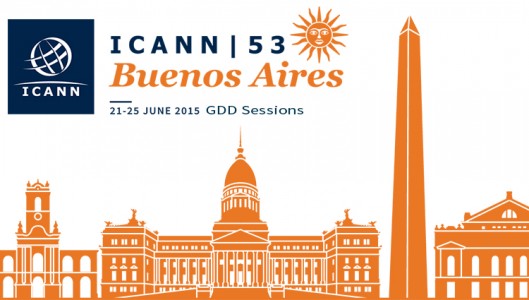NCUC held an outreach meeting for Civil Society during ICANN 53, which targeted local and newcomer NGO/civil society community (https://buenosaires53.icann.org/en/schedule/sat-civil-society-ncuc).
Several speakers spoke to the various concerns that NCUC has been following in ICANN, and the need to have a civil society voice. In his welcome remarks, NCUC Chair Bill Drake pointed out that there is need to have policies that reflect community’s participation this grounds NCUC work in ICANN. Milton Muller, kick started the session where he gave a brief on IANA and the transitioning of US Control. Next was Mathews Shears who spoke on accountability and reported that for the last six or seven months, there has been ongoing work in anticipation of accountability measures in ICANN in the next five years. This therefore calls for strong community powers for example where the community is able to recall board members, as well as have a say in ICANN’s strategy. However, there is challenge of empowering the community to be able to use its power. An example of one of these challenges has to do with what mechanism needs to be put in place for this accountability. In light of this, a proposal was circulated in May, and had received over fifty comments which are under discussion.
At the moment, it is clear what powers are required but the mechanism to do this remains vague. Getting accountability powers is critical to IANA transition. Neils ten Oever drew the link between ICANN and human rights. He noted that ICANN impacts a lot of human rights and human rights span across several areas of ICANN. It is the very reason that the CCWG on human rights is focusing mainly on defining standards. On Privacy, James Ganon noted that privacy within ICANN is complex and as such is a core part of NCUC. There are privacy and proxies accreditation issues mainly in the directory of whois that includes details of who holds the domain names (http://whois.icann.org/en). There are concerns for example of what would happen if ICANN conflicted with a country’s privacy laws. There is need therefore to have a middle ground on how to manage the conflict. As such a modern approaches are being discussed to replace the WHOIS privacy management.
Access to knowledge and intellectual property concerns were highlighted by Robin Gross. She gave an example of Trademarks and how they affect freedom of expression. Freedom of expression calls for the right to criticize freely but trademarks also have rights. The issue is on balancing these two. Maria Farell spoke on freedom of expression and raised the point of when you write stuff on internet, sometimes you get insulted for expressing yourself freely. At NCUC, the focus is on the need for data privacy to allow for individuals to express themselves freely. And so the question is how do we ensure privacy at the domain name system?
Marilia Maciel highlighted the interplay between ICANN and development, which comes in the Gtld applications where the tendency has been to have more applications from the developed world. She mentioned that a working group had been constituted a few years ago whose work was to make suggestions for applications representing for example different scripts so that not all applications would necessarily be in English. The group proposed a scaled application fee, as well as the need to have outreach in developing regions so that there would be more applications from the said regions. She observed that the implementation of this report is still ongoing. In addition, there is an ongoing conversation in ICANN meetings on how DNS business can be fostered in developing countries.
